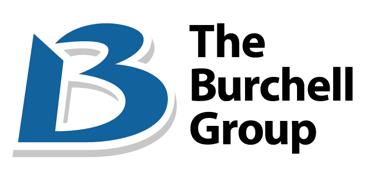Please download the Word Document above or please read below!
Phone Interview Tips and Techniques
Congratulations on being selected for a phone screen with my client.
First thing we need to warn you about is this…..MOST CANDIDATES TAKE THIS INTERVIEW FOR GRANTED!
“IT’S JUST A PHONE SCREEN, I’LL CARE WHEN I GET THE FACE-TO-FACE INTERVIEW!”
BAD ANSWER
If you are interviewing for a contract opportunity, our client may be able to hire you after a phone screen!
Also, there is no way to get the job if you fail the first step!
WestBurchell put this phone interview tips and techniques sheet together to help our candidates prepare for the phone screen. Our experience shows that candidates that follow these techniques greatly increase their chances of getting the opportunity.
PREPARATION
WHAT YOU NEED:
A solid phone connection.
- We can’t tell you how many people have lost a job because the client couldn’t hear the candidate. Make sure you are either calling from, or receiving the call from an area with solid reception.
- Best bet is to always try to use a landline.
Give yourself more than enough time to complete the phone screen.
- Phone screens typically last 15 to 30 minutes. Try to give yourself 40 minutes. We know this is easier said than done, especially if you are currently working.
- If for any reason the interview goes too long or an emergency causes you to have to call the interviewer back, PLEASE make sure to schedule a proper time. This is important and shows professionalism.
Have a Notepad and Pen at the ready.
- Most phone interviews ask technical questions and it is always easier to remember answers when you can write the question down and work out the problem on paper.
- Taking notes is also a good idea.
Do some homework, Basic client information.
- Make sure your recruiter sends you information about the client.
- Also do your homework. There is nothing worst of being asked, “what do you know about us?” and answering “not much.” This shows a complete lack of interest on your behalf. So do your homework.
- Check out the client on LinkedIn.
- Make sure you have his name and try to go see if you can find him or her on LinkedIn.
- What if you have a mutual friend?
Have the job description in front of you!
- This way you will have a better feel for the types of questions.
- It will also help if a point arises where you can sell your skills.
- “I noticed on the job description that you were looking for someone with ABC. I have 3 years experience with ABC. I used ABC with the following company’s…..”
Be prepared to speak slowly and clearly.
- This is always true for everyone but especially true with anyone where English is a second language
- ONE OF THE MAJOR REASON’S CANDIDATES ARE REJECTED IS BECAUSE OF POOR COMMUNICATION SKILLS. It is our experience that when people speak slowly they are much easier to understand.
QUESTIONS:
Phone interviews are typically conducted just like in-person interviews. Hiring managers and recruiters use them as a tool for screening candidates for employment.
One major difference is they obviously tend to be shorter and tend to focus on quick technical questions.
These are intended to test your overall knowledge in your skill set. So please be prepared. We know this is easier said than done and sometimes we take for granted our knowledge about a subject, having worked with something for so long.
EXAMPLE:
Let’s say you are a .Net Developer and the interviewer asks you…..
What’s the difference between Left, Right, Outer and Inner Joins?
This is something you might do every day, but it may be difficult to explain. Take your pad and pen and build a scenario for the interviewer that let’s you build the tables and explain them easier.
TYPICAL QUESTIONS:
It’s important to take time to review the typical phone interview questions you’ll be asked and to prepare answers. In addition, plan on being prepared for a phone conversation about your background and skills.
Phone Interview Questions About Your Background
- Name of company, job title and job description, dates of employment.
- Interviewers expect you to know your resume. They will expect you to know your work history.
- Also be prepared to know why you left every position
What were your responsibilities at these positions?
- Be specific and positive about what you have accomplished.
- Always remember to be honest!
What major challenges and problems did you face? How did you handle them?
- Here, we are setting up differentiators between you and the other candidates.
- EXAMPLE: When the software development of our new product stalled, I coordinated the team that managed to get the schedule back on track. We were able to successfully troubleshoot the issues and solve the problems, within a very short period of time.
Why are you leaving your job? Or why did you leave your job?
- Regardless about why you left, don’t speak badly about your past employer.
- If it was a negative experience, use words like challenging and difficult to explain a very tough situation.
What are your salary expectations?
- Please make sure you and our recruiter are on the same sheet of music when it comes to your conversation.
- It is very difficult for WestBurchell to ask for more money once you have told them your expectations.
Phone Interview Questions About the New Job and the Company
What interests you about this job?
- The best way to respond is to describe the qualifications listed in the job posting, then connect them to your skills and experience. That way, the employer will see that you know about the job you’re interviewing for (not everyone does) and that you have the qualifications necessary to do the job.
- An example would be if you were interviewing for a Programmer / Analyst position. In that case, you would mention your interest in learning and excelling at new technologies, your experience in programming new applications, and your interest in and your ability to problem solve.
What applicable attributes / experience do you have?
- When you are asked questions related to the experience that qualifies you for the job, it’s important to be very specific about your skills and experience.
- The best way to respond is to describe your responsibilities in detail and to connect them to the job you are interviewing for. Tie your responsibilities in with those listed in the job description for the new position. That way, the employer will see that you have the qualifications necessary to do the job. Focus most on your responsibilities that are directly related to the new job’s requirements.
- It’s also important to be honest and accurate. Don’t embellish your job, because you don’t know who the hiring manager will be checking with when they check your references.
What do you know about this company?
- Prepare in advance, and in a word, research, so, you can provide relevant and current information about your prospective employer to the interviewer. Start by researching the company online. Review the “About Us” section of the company web site. Google the company, read blogs that mention it, and check Discussion Boards and social networking sites.
Why do you want to work here?
- This company is internationally known for its (widgets), and my experience in the (marketing/planning/production/etc.) of (widgets) has me intrigued by the opportunity this position presents.
- The businesses in this area are known for their commitment to the community, and I would like the opportunity to participate in making this a better place to live.
Phone Interview Questions About You
- What are you looking for in your next job? What is important to you?
- Work – Life – Balance is important, let them know that.
- Try this; what is the typical career path at the company?
What is your greatest weakness?
- Honesty works here. We know that it is easy to try this approach…I work too hard, but we prefer honesty.
If organization is a problem, tell them that and what you are doing to work on this weakness.
What is your greatest strength?
- Same as above, but describe how you built this strength.
Tell me about yourself.
- Most common question asked in any interview.
- Be prepared, be specific, and tell them what differentiates you from other candidates.
- “I’m a seasoned Manager strong in developing programs and techniques that have resulted in revenue savings of over $2.3Million for (employer’s name) during the past 11 years.”
Finally the interviewer will ask you if you have any questions.
Here is the final question you need to ask:
Is there anything missing from my background that would keep me from being a fit for this position?
We call this the CLOSE! This is your chance to overcome their objections, if they have any!
For example: if the interviewer says, I am concerned about your lack of experience with ABC, state, “I understand your concern, but I do have extensive experience with XYZ, which is very similar in many aspects as ABC, and I truly believe the learning curve will be minimal.”
But what if they say they have no concerns?
Then say, “What’s the next step?”

